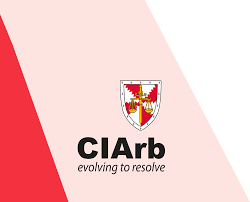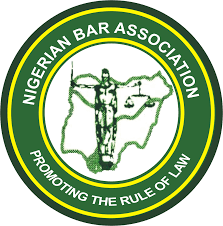Estate Planning in Nigeria: How to Get Started with Wills & Amendments
In Nigeria, as in many other countries, the concept of Wills plays a crucial role in estate planning and the distribution of assets after an individual’s demise. A Will is a legal document that outlines how a person’s assets and properties are to be distributed after death.
Understanding the intricacies of drafting Wills and making amendments is pivotal for individuals aiming to ensure their assets are distributed according to their wishes. In this article, we will consider the process of creating formal Wills, explore the significance of amendments, and shed light on the legal framework governing these matters in Nigeria.
Meaning of a Will
A Will is simply a legal document which contains the intentions and wishes of a person to be carried out after death. Some notable features of a will are:
- Testamentary: It takes effect after the death of the testator (the writer or author of a will is called a Testator).
- Ambulatory: It can be changed by the Testator at any time before his death. Any change to a will is commonly effected by codicil.
- Voluntary: It is voluntarily and independently made.
Legal Framework for Writing a Will in Nigeria
The legal framework governing wills in Nigeria is primarily derived from the common law system, with statutory provisions also playing a significant role.
The main legislation governing wills in Nigeria is the Wills Act 1837, which is based on English law principles but adapted to suit the Nigerian legal system. Additionally, state laws apply in different states as well as customary laws in regions where it is predominant.
Types of Will in Nigeria
- Formal/statutory Will: A Will made according to the prescribed form in the Wills Act/Wills law of various states in Nigeria, or according to requirements of formal statutes, e.g., Armed Forces Act.
- Nuncupative will: This kind of will is customary and it is the oral directives of a deceased person.
- Privileged will: These are wills made by persons in actual service, e.g., Soldiers in active military service, Seaman at sea, A crew of a commercial airline.
- Holographic will: These are wills written in the hands of a testator and do not always conform with other formal requirements but must be witnessed.
Requirements for a Valid formal will in Nigeria
Under Nigerian law, for a formal/statutory will to be valid, it must meet the following requirements:
- Testamentary Capacity: The testator, i.e., the person making the will, must be of sound mind and at least 18 years old and above.
- Intention: The testator must have the intention to create a legal document that dictates the distribution of their assets after death.
- Writing & Signature: The will must be in writing and signed by the testator or by someone else in their presence and at their direction.
- Attestation: Under Nigerian laws, a will must be witnessed by at least two competent witnesses who are present at the same time.
Amendments of a Will in Nigeria:
Amending a Will means making changes or additions to an existing will. There are various reasons why an individual may choose to amend their will, such as changes in family affairs, acquisition of new assets, etc.
Generally, alterations made to the will after execution are considered invalid because the process of amending a will is governed by specific rules and procedures to ensure the validity and enforceability of the amendments, therefore where a will is purported to be altered after execution, the testator alongside the witnesses must execute the altered parts of the will to make the alteration valid.
Only a Testator(male)/Testatrix(female) of a will can validly amend the will.
Amendment of a formal/statutory will is done by executing a codicil. A codicil is a legal document that supplements or modifies an existing will without revoking it entirely.
Like a will, a codicil must meet the requirements of testamentary capacity and formalities to be valid. It must be in writing, signed by the testator, and witnessed by competent witnesses.
However, in some cases, it may be more appropriate to revoke the existing will entirely and create a new one. This could be necessary if the amendments are extensive or if the testator wants to make significant changes to the distribution of their assets.
Advantages of Making A Formal Will in Nigeria
The following are key advantages of making a will:
- It allows the maker to give directives as to the distribution of property upon their demise as well as burial directives.
- Helps in certain instances to prevent fights among family members with regards to inheritance of the assets of the deceased.
- Helps avoid statutory devolution i.e., where the assets are distributed in accordance with the intestacy law.
- It ensures continuity in the administration of the estate of the testator.
- It can be used to protect the interest of loved ones through appointment of guardians, donations, etc.
Conclusion
Understanding the legal framework, procedures, and recent developments surrounding wills is essential for individuals seeking to safeguard their assets and ensure their wishes are carried out after their demise.
By adhering to the requirements for creating and amending wills, individuals can provide clarity and certainty for their loved ones and minimize the potential for disputes or challenges in the future. As the legal landscape continues to evolve, staying informed about the latest developments in wills and estate planning is paramount for individuals and legal practitioners alike.
Berkeley Legal is a leading business law firm in, Nigeria. We provide a comprehensive and sophisticated range of specialized and personalized legal services that are designed to meet the various needs of highly diversified local and international businesses.
If you would like to know more about wills or amending a will, please contact info@berkeleylp.com
The information provided in this article is for general informational purposes only and does not constitute legal advice.







